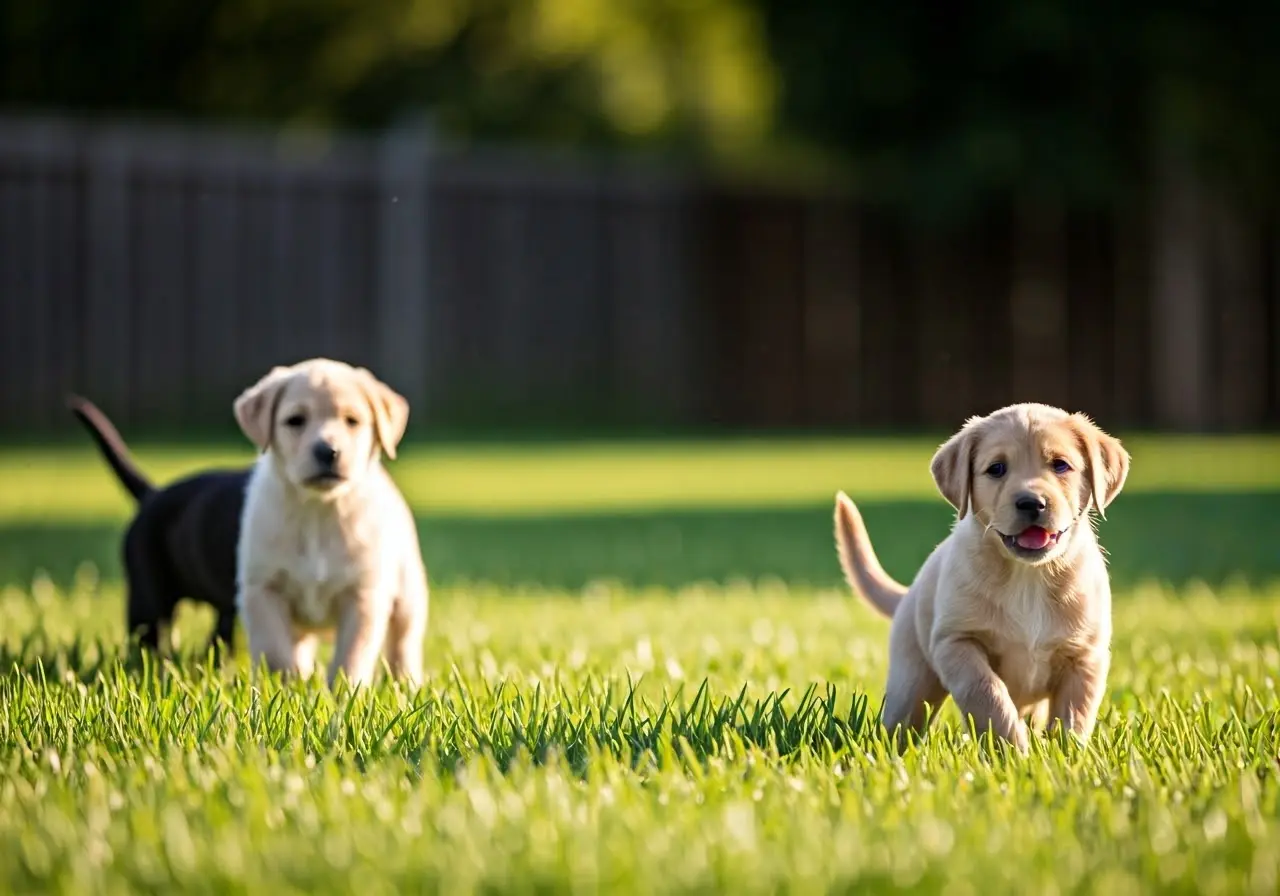Welcoming a puppy into your home is a joyous occasion, filled with love and excitement. However, with this joy comes the responsibility of training your new furry friend. Puppy training classes can be a valuable tool in building a strong bond with your puppy, fostering obedience, and ensuring a harmonious home. In this blog, we’ll explore how puppy training classes can benefit both you and your pup.
The Importance of Early Training
Early training is critical in shaping your puppy’s behavior and personality. Engaging in structured classes at a young age helps to curb unwanted behaviors, promotes socialization, and builds the foundation of a well-mannered dog. Training your puppy not only fosters a sense of obedience but also strengthens the emotional connection between you and your furry friend. By participating in puppy training classes, you are establishing yourself as a leader, guiding your puppy towards becoming a confident, well-adjusted adult. As Trisha from The Other End of the Leash suggests, the curriculum has evolved to focus on exercises practical for both your home and public life, creating a harmonious environment where your puppy can thrive.
Structured training classes provide a controlled environment where your puppy learns to associate positive outcomes with desired behaviors. This is crucial for instilling habits that last a lifetime. During these classes, puppies are taught to sit, stay, come, and walk on a leash, among other basic commands. Introducing your puppy to these fundamental commands early on ensures a well-behaved and obedient partner who understands what is expected of them. The focus on reinforcing good behavior through positive reinforcement allows for a loving and stress-free learning experience, setting your puppy up for success in various situations, whether it’s a walk in the park or a trip to the vet.
Moreover, early training lays the groundwork for preventing common behavioral issues such as excessive barking or destructive chewing. Through training, your puppy can learn to manage impulses and develop self-control, which ultimately contributes to a safe and happy environment for your whole family. According to Focused Dog Training, starting training early establishes clear boundaries and a routine that your puppy can easily follow, minimizing the chaos that can arise from a lack of discipline. These classes also give owners the tools to effectively address and manage any challenges that arise, promoting a peaceful coexistence in your home.
What to Expect in Puppy Training Classes
Puppy training classes offer an opportunity to introduce your pup to basic commands, leash etiquette, and positive reinforcement techniques. You’ll gain insights into managing common challenges and fostering good behavior patterns from the start. Typically, classes are designed to be fun and interactive, ensuring that both you and your puppy enjoy the learning experience. You’ll find that the activities involved are not only educational but also serve to build the trust and rapport between you and your puppy.
Expect classes to focus on real-life scenarios that your puppy will encounter, allowing them to practice and reinforce their new skills in a practical setting. This might include guided exercises on how to behave around other dogs, how to respond to simple commands in a busy environment, or even how to ignore distractions. According to Trisha’s insights, current curriculums have shifted away from rigid obedience and are more focused on what benefits everyday living for both dog and owner. This modern approach ensures that your puppy learns behaviors that are applicable and useful, forming a strong basis for a well-balanced pet.
Understanding the dynamics of learning and play is crucial during this stage, as these elements are intertwined in effective puppy training. Games and playful activities are a staple in classes, making the learning process engaging. Activities like fetching or hide-and-seek not only enhance the bond you share but also teach your puppy to focus and follow commands in a lively way. This interactive environment ensures that learning is a joyful and rewarding experience for both you and your puppy.
Choosing the Right Class for Your Pup
Selecting a training class that matches your puppy’s personality and your training goals is essential. Whether it’s group settings for social interactions or personalized sessions, understanding the options available will help you make the right choice. It’s important to consider your puppy’s energy level, temperament, and specific learning needs when selecting a class. For instance, while some puppies thrive in a bustling group environment, others benefit more from the one-on-one attention that personalized training allows.
When considering which class to choose, it’s helpful to explore The Ultimate Guide to Choosing the Right Dog Training Home Visits Service. This guide provides insights into tailoring the training experience to your puppy’s unique needs. Look for classes that emphasize positive reinforcement and have experienced trainers who can adapt their methods to suit different breeds and personalities. Inquire about the class structure, curriculum, and the types of activities included, ensuring they align with your goals for your puppy.
Moreover, consider the logistics such as location, schedule, and duration of the classes. Opt for a convenient setting that offers flexibility for you and your puppy to practice regularly without stress. The right training class will feel like a partnership where both you and your puppy are comfortable and inspired to learn. Choose a class where the trainer is approachable and willing to work with you to address any concerns, providing support throughout the training journey.
Additionally, testimonials and reviews from fellow puppy parents can be invaluable in your decision-making process. They offer real-world insights into the effectiveness and environment of the classes you’re considering. Look for feedback that highlights progress in behavior, the engagement level of the puppies during class, and any specialized attention given to typical puppy challenges. Being informed will empower you to make the best choice for your furry friend, setting them on a path of success and growth.
The Role of Consistency and Patience
Consistency and patience are key components in the puppy training journey. Reinforcing what is learned in classes at home ensures lasting results and strengthens the bond between you and your puppy. The emphasis on being consistent with commands and routines cannot be overstated. Puppies, much like young children, thrive on routine and clear expectations. By being consistent with the training methods introduced in class, you solidify their learning and enhance their cognitive development.
Patience plays an equally essential role in training. Puppies learn at their own pace, and it’s important to be patient as they navigate the learning process. Training isn’t a race; it’s about developing a deep mutual understanding. Some puppies might grasp concepts quickly, while others may need a bit more time. Maintaining a patient demeanor not only prevents stress but also creates a nurturing environment where the puppy feels safe to try, make mistakes, and learn.
Incorporating positive reinforcement into your training regimen maximizes the effectiveness of both consistency and patience. Celebrate your puppy’s successes with treats, praise, or playtime, reinforcing their eagerness to learn and please. This approach has been backed by experts like Patricia McConnell, who emphasizes that a supportive environment where puppies can thrive is paramount. According to Trisha’s insights, patience coupled with consistency lays the groundwork for a strong, lifelong relationship between you and your puppy.
The Socialization Aspect of Training Classes
Puppy training classes are not just about obedience; they play a crucial role in socialization. Exposing your pup to new experiences and environments helps in raising a confident, well-adjusted dog. The period between 8 to 16 weeks is often considered the golden window for socializing a puppy. During this time, they are most receptive to new encounters and experiences, making it the perfect opportunity to introduce them to a variety of settings.
Training classes offer a structured environment where your puppy can interact with other dogs and people, forming positive associations and minimizing fear responses. Dogs that are well-socialized tend to be less fearful and aggressive, adapting better to changes throughout their lives. This facet of training is crucial as it impacts your puppy’s overall well-being. According to experts, like those at Focused Dog Training, socialization is integral in crafting a well-rounded and serene adult dog.
Strengthening Bonds Through Puppy Training Classes
Puppy training classes provide more than just basic obedience skills; they create opportunities to build a deep, lasting bond with your puppy. By engaging in these classes, you and your puppy will gain confidence, improve communication, and set the foundation for a lifelong friendship. Consider enrolling in classes today to take the first step in this rewarding journey.


